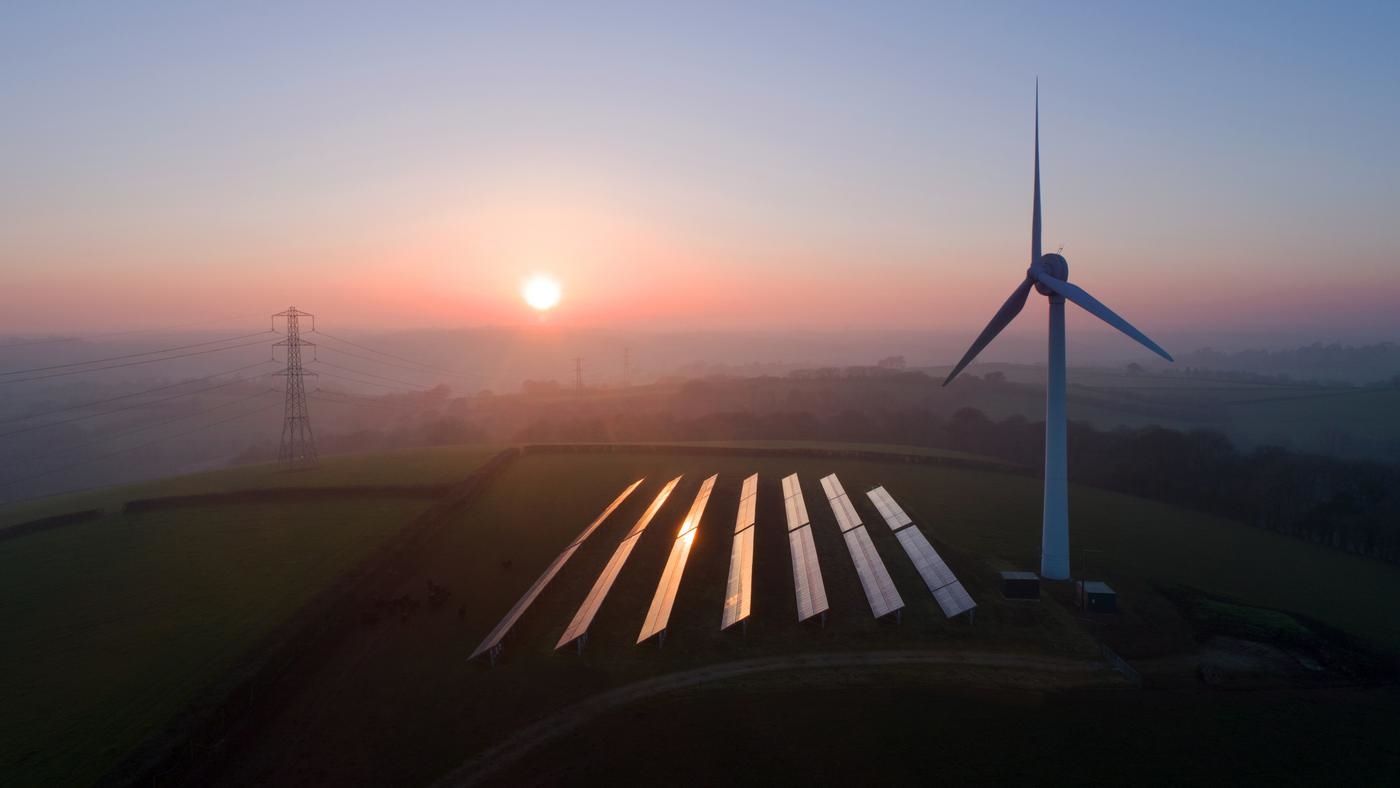COP28 takeaways: why collaboration matters now more than ever
At this year’s COP28, Edinburgh Science and Wood Mackenzie’s discussion ‘Delivering on the promise of climate finance at last’ tackled the importance of climate finance, the role of international collaboration in addressing climate change, and the need to mobilise investments in emerging markets to drive sustainable solutions
5 minute read
At COP28, our Vice-Chair Americas, Ed Crooks, chaired a fascinating panel on ‘Delivering on the promise of climate finance at last’; a discussion forming part of the Edinburgh Science Climate Co-Lab series.
Ed was joined by speakers Ambassador Patricia Espinosa Cantellano (Former UNFCCC Executive Secretary, Former Minister of Foreign Affairs of Mexico, Ambassador Emeritus of Mexico and CEO and Founding Partner of onepoint5), Mohamed Sultan (Regional Lead Africa, Global Methane Hub) and Nigel Topping CMG (UN Climate Change High-Level Champion at COP27, Member UK CCC, and NED at UKIB), who delivered moving provocations around the barriers facing climate finance - and how the public and private sectors must work together to overcome them.
Fill out the form on the right to download a detailed transcript of the event, or read on for three of our top takeaways from the insightful speeches and discussion:
1. We’ve got everything to gain if we collaborate
All of the speakers emphasised the importance of collaboration and proactive action in addressing climate change, with a call for leaders from business, public sector, and higher education to collaborate and act for positive change. As Patricia Espinosa pointed out, when it comes to climate finance, “public finance is not enough: we need better collaboration between the public and private sector”.
Patricia outlined the necessity for more collaboration and dialogue between the private and the public sector - and much better understanding of what the challenges are. It's evident that the public finance is not going to be enough and is not going to solve all the problems. What is happening in general regarding global governance is that the structures that we have are no longer reflecting the reality of the world we are living in. We need those actors to work together, and to work with civil society. Civil society needs to continue and accelerate demands on leadership to address the climate emergency and meet the targets that have been set, and leadership needs a mindset change: this is not a ‘cost’ but an investment in all our futures.
We need to rewrite the rules of global financial architecture, agreed the speakers. We are working with a global financial system that was put together many years ago, but the global landscape is now in a different place and governance cannot achieve goals without changes to global frameworks.
Whilst we have spent 10 years thinking about the $100bn figure, we must realise that even if we had made $200bn each year it may not have made a difference. When we look at debt, more countries need access to lower cost, longer-term debt, so we should be talking about the use of instruments like sustainability linked bonds. The rules must change – and we must come together to change them.
If we do not have an agreement, if we do not have a framework, we all are going to lose. There is nothing to win by disagreeing and there is much to win if we can agree.
![]()
Ambassador Patricia Espinosa
2. We must tackle our biases towards investing in countries in the South
Another theme that emerged from the discussion around climate finance was our bias against investing in countries in the global south – resulting in missed opportunities and wasted potential.
For example, Africa currently holds 40% to 60% of solar renewable capacity but only receives 1% of renewable investments – despite the fact that last year it produced as much renewable solar as Belgium.
The group agreed that it's important to think about the structural questions of why finance doesn't flow to where it needs to flow and the structural levers that could change it.
When asked about the barriers to reducing the cost of capital to developing countries, the speakers identified perception as a key challenge. There's ample literature around risk premium that's associated with emerging markets and risk, particularly for Africa, that doesn't meet the reality on the ground.
The panellists also touched on the question of availability of data, and pointed out that we don't have enough data on these countries and gather enough data points to be able to have a reasonable view of what the market is and what the risks are. As a result, too often, we proxy everything.
In fact, the importance of data overall in combatting climate change was a significant theme that emerged in the talk. We must make decisions right now that will shape our world for generations to come, and this requires data. It will take two years to see if there is a $100bn investment during 2023. In two years, this will be history. Climate change is moving fast. We must consider: what data do we need? What data is biased and/or inaccurate? How quickly can this data be gathered through collective technology and brain power? How can we attribute value to that which is difficult to quantify – homes, lives and dignity? Again, this comes back to the importance of working together to update our data and update our rules.
How the investment world and how financing decides to think about how we organise access and the management of critical minerals in the developing world is going to hugely impact the rollout of renewables across the world. How we deal with that is a matter of governance, is a matter of targeted finance, is a matter of greater transparency, cooperation and frankly, building up the places where those minerals are coming from much higher up the value chain than if we stay within an extractive system that hasn't worked for many developing countries […] We're just going to be fuelling poverty and we're not going to be able to address the climate concern.
![]()
Mohamed Sultan
3. We need to focus on the opportunities and create ‘financial FOMO’
As Nigel Topping pointed out, “obsessing about decarbonisation in an economy that's largely decarbonised” is the wrong move, and we really need to move from a paradigm of problems and costs to one of opportunities and investment.
The event shone light on many of these opportunities, and provided insights into the significant investment opportunities in decarbonisation, renewable energy, methane emissions reduction, and critical minerals, particularly in emerging markets and Africa.
For example, 54% of all critical minerals are located on community and indigenous land. That is really important because it heavily affects how those minerals are then extracted. The impact that they have not only on the environment, but on social life and social dynamics. The flow of finance needs to fundamentally think about its impact there and how it can better process that to fundamentally minimise the risk associated with it.
As Mohamed Sultan pointed out, when working with developing countries, we have the opportunity to front-load investments, using everything that we know and have learnt alongside leaders from the global south’s knowledge, avoiding continuation of historical, extractive systems that have fuelled climate change.
This is not a case of helping out; we must invest in our future. There are incredible, investable projects happening across the global south. We must look for them and invest. Investors must be educated about these big opportunities, and made to feel that if they do not take them, someone else will make money from them. Opportunity creates FOMO.
![]()
Nigel Topping, CMG
Learn more
To gain more insights from this fascinating meeting of minds, please fill out the form on the right to download your complimentary transcript of the ‘Delivering on the promise of climate finance at last’ event.








